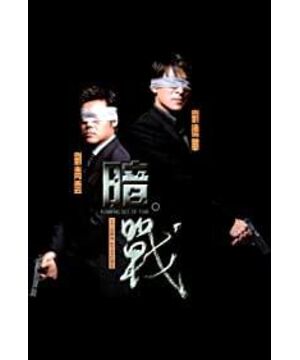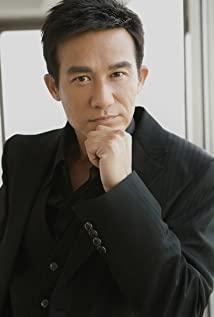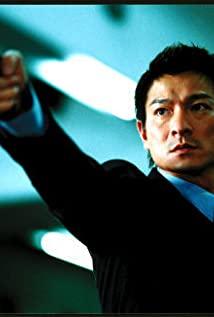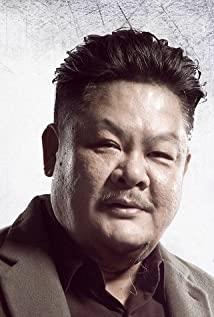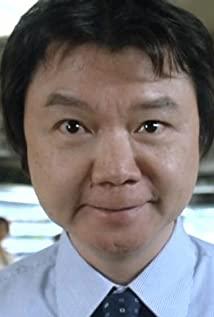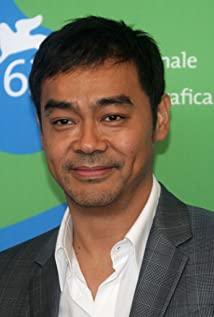In 1999, Johnnie To made two important films, "Dark War" and "Gunfire", and "Gunfire" won two best director awards for Johnnie To. , Andy Lau and Wu Zhenyu, the protagonists of the two films, also won the Golden Statue and Golden Horse Movie King respectively. However, in my opinion, its importance is far more than simply winning prizes. It is well known that the capital of the Milky Way image's life is the distinctive galactic branding in its series of police films. These brandings have been in the same line since "The Birth of a Prefix", and finally created the unique style of the Galaxy Image in Hong Kong movies. However, after a little inspection, it is not difficult to find that some elements have been sublated in this process, and the watershed was in 1999. Before that, You Dazhi, one of the iron triangles, occupied half of the galaxy with his works "Two Only Live One", "Very Suddenly", and "Dark Flower", which also laid the main tone for early galaxy works of impermanence and surly darkness. In 1998, You Dazhi left the galaxy image after filming "Dark Flower", and the Iron Triangle fell apart. It was reasonable for Johnnie To to reshape his own heart of the galaxy image style as soon as possible. From today's point of view, Johnnie To in 1999 not only did it, but also did it very beautifully.
Going back to the movie "Dark War", audiences who saw the title would inevitably compare it with "Dark Flower". With the release time of only one and a half years, they regarded "Dark War" as an atypical companion of "Dark Flower". It’s not a bad idea—the two works both use the battle between the two heroes as the main line of the film development ("The Dark Flower", Tony Leung and Liu Qingyun, "The Dark War", Andy Lau and Liu Qingyun), the difference is that "The Dark Flower" is full of suffocating people. The protagonists are all pawns that are manipulated, and everything they do is a battle between trapped beasts on the chessboard of fate. Just like the English title of the movie: The Longest Nite, it reveals endless darkness and despair. To sum up the fatalism in "Famous Flower", just like what I said before, fate is impermanent, it is unknown, although we can feel that it is everywhere in the dark, but we don’t know where to draw the protagonist. . Therefore, it can be said that "The Dark Flower" relies on plot to show fate, just like the detective novel of the golden age, it uses reasoning to drive the plot. What we can do is to follow the protagonist and follow the clues of the story to move step by step to the final. ending.
Why is "Dark War" his most important work for Tou Qifeng? It is because I think that the fateful sense of galaxy image that people talk about was shaped in "Dark War". First of all, Johnnie To removes the fateful "absolute power" in You Dazhi's works, so that people are no longer reduced to a doll. Secondly, Johnnie To's destiny advertised is knowable and irreversible-the "knowable" here is not insight, but refers to a certain degree of predictability. Similarly, "irreversibility" is by no means powerless. In fact, in Du Qifeng's subsequent works, there is rarely a protagonist such as Achen (Leung Tow Wai) in "The Dark Flower" who has always believed that he can control the overall situation and break his fate, but more often Like Andy Lau in "Dark War", he foresees his fate from the beginning and walks on calmly.
This passage is very simple to say, but when it is put into a movie, the performance method will have to undergo a radical change. So I have to mention that I quoted others’ evaluations of Johnnie To in the first paragraph, and then said that unlike "The Dark Flower", which relies on the plot to show fate like a general feature film, "The Dark War" should convey the words of Johnnie To’s fateful view. The whole story must be constructed with details. It is true that there are no shortage of memorable details in "Familiar Flower", like a scene where Achen and Yaodong face off in the police station, the light in the cell, the pinball in Yaodong's hand, and the room where the two later duel. The countless mirrors... But it cannot be denied that these are irrelevant to the establishment of the whole story. It can be said that "Fan Hua" is like spreading out a black canvas and then painting a thick flower on it. All the details are just embellishments on the canvas. In the end, the entire work is completed, relying on lines. Then take a closer look at the sections in
"Dark War": The English title of "Dark War" Running out of time (I thought it was much better than the Chinese title) directly pointed out the theme of the film: time is tight And time is running out. In my impression, this is the only movie in the Galaxy Image. The background sound of the opening subtitles is not music, but footsteps. Yes, the soundtrack of the Galaxy Image has always been praised. Can you say that this is not what Johnny did intentionally? ? The first dialogue: Andy Lau asks "How long will it take?" "Four weeks", even if the background of the film is clearly explained, what the protagonist has to do in the final time of his life is to race against time.
The battle of wits and courage between the "two Lius" in the movie is also regarded as a classic by most people. It is different from the contest between Liu Qingyun and Tony Leung in "The Dark Flower". The two protagonists have been in a head-to-head confrontation almost from beginning to end. In the intense and exciting scene, time has become a key word. Andy Lau used Liu Qingyun to adjust the tiger away from the mountain and gave him 30 seconds to get to the escape exit. Later, Liu Qingyun did the same, and counted down 60 seconds in the bar for him to convince himself. The most obvious is Andy Lau's sentence: "If you get it, even if you win", this sentence can be counted as a point sentence of the film. The bridge segment expanded by this is three times in the film. The first time Andy Lau threatened Liu Qingyun with a gun. Escaped smoothly; after the second crash, the two people walked arduously towards the box containing the diamonds. It was also a time contest, and they were finally won by Andy Lau. The third time was the most exciting, when everyone thought Andy Lau was using death talent. When he won the final game, the director gave the audience another surprise. What's interesting is that Andy Lau, who is destined to fail and whose life is destined to die, has steadily controlled the situation in every contest. This is John To's "absolute power". Rather than saying that this is John To’s compromise or reconciliation of society, I think it is his more open-minded and mature attitude than You Dazhi. The protagonist is no longer powerless in fate, which not only makes the film more acceptable to the audience and the market, but also the life and death of Johnnie To. The embodiment of view. Just as everyone knows that our birth is unavoidable to death, but in the limited years within our ability, we have created different, ordinary or magnificent lives. The fate conveyed in the film more or less reflects John To’s romanticism and classical heroism.
As I said, "Dark War" is by no means a simple storytelling, but a theme of Running out of time, which forces the director to set many details, let these details replace the director, and keep jumping out to remind us What is the main purpose of the film? These details ultimately constitute the entire work, and these details not only refer to the lines, actions, eyes, but also the rhythm of the film. With John To's control, it is impossible to let the excitement of "war" continue throughout the film. The rhythm of "Dark War" is a standard one-by-one relaxation. As we all know, in most of Johnnie To’s gang-themed movies, the role of women is extremely small and unimportant, but this movie is different. After the three confrontations between "Two Lius", three paragraphs of Meng Jiahui are interspersed. The combination of the two, it is as perfect as breathing. The first two encounters between Andy Lau and Meng Jiahui on the bus were in these two scenes with almost no lines. Not only did the two persons change their identities, the audience even heard the voice of love germinating, so that after Andy Lau said to Meng Jiahui When the phrase "I'm sorry, I don't have time", everyone sighed with emotion. I even wanted to answer her on behalf of Andy Lau. If I have time, I will always be with you-but time is beyond me. Fate. The power of these two emotional dramas exploded in peace, enough to make Johnny To worthy of the praise of the film critic I trust, and even John To's later films did not appear again. Meng Jiahui’s last appearance was the end of the film. I believe many people are willing to regard this end as a classic in Hong Kong film history. At the end of his life, Andy Lau avenged his father, and won the duel with a sympathetic opponent, giving his lover a comfort and confession. He may never appear again, but he lives in He SIR and his lover, as well as the expectations of every audience. Then, whether he is defeated or won, insignificant or great in the contest with fate, it will become the unforgettable echo of those who have watched the movie.
Although it is still unclear who manipulated the three works named by You Dazhi, the sudden change in the style of the three works launched by Qifeng To (and a "Goodbye A Lang") in 1999 is not directly related to You Dazhi's departure. Knowing, or perhaps it is just the mentality change of Hong Kong filmmakers at the end of the century. I dare not talk about current events. At least today, 12 years later, the film I saw still hasn't faded in the years.
View more about Running Out of Time reviews


